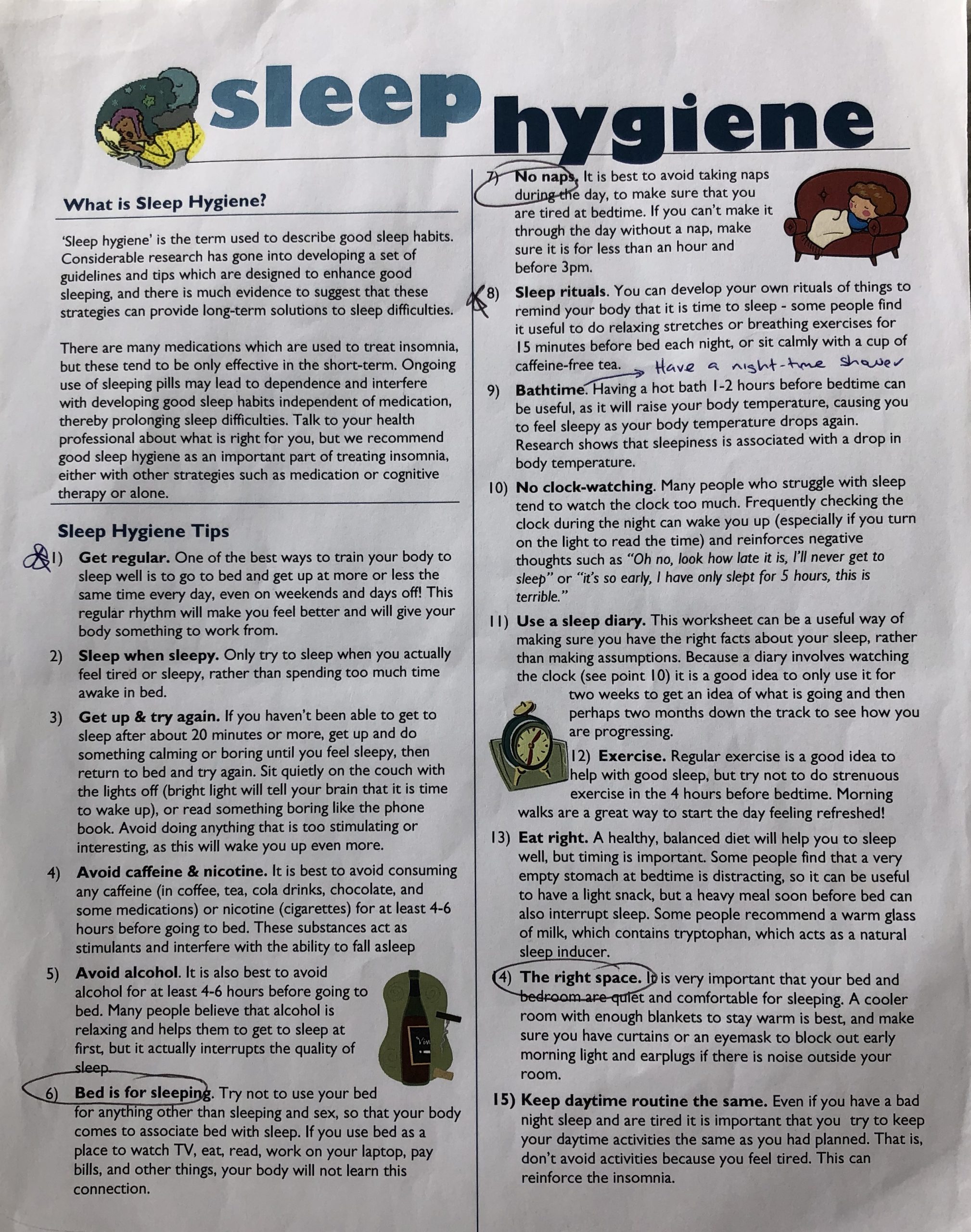TIP FIVE – SLEEP HYGIENE ☀️
Sleep Hygiene is the term used to describe healthy sleep habits. Below, we provide some evidence-based strategies and long-term solutions to help with sleep difficulties.
Why is sleep hygiene important for our mental fitness?
There is a bidirectional relationship between sleep and mental health. Mental health disorders tend to make it harder to sleep well. At the same time, poor sleep, including insomnia, can be a contributing factor to poor mental health.
Both sleep and mental health are complex issues affected by a multitude of factors, but, given their close association, there is strong reason to believe that improving sleep can have a beneficial impact on mental health and can be a component of treating many psychiatric disorders. Steps to improve sleep may even form part of a preventive mental health strategy.
Sufficient sleep, especially REM sleep, facilitates the brain’s processing of emotional information. During sleep, the brain works to evaluate and remember thoughts and memories, and it appears that a lack of sleep is especially harmful to the consolidation of positive emotional content. This can influence mood and emotional reactivity and is tied to mental health disorders and their severity.
Good news! Sleeping well is a habit that you can learn!
Below is a helpful resource that Jess (Mindfit NZ Founder) received when she was struggling with her mental wellbeing.
We recommend that you start by committing to just two or three of these tips on a daily basis and see how your sleep patterns improve. Small, manageable steps are more sustainable long-term than trying to incorporate everything at once.
Jess, for example, chose to start with number 6 & 7: “Bed is for sleeping” and “No Naps/ No Naps after 3pm”. Overtime she has added tip 1, 8 & 14: “Get Regular,” “Sleep Rituals” and “The Right Space” to her sleep toolkit to further boost her sleep health and overall mental fitness.
There are many tips to choose from and again everyone’s situation is different, so what will help your sleep will depend on YOU and may be different to what has helped Jess’. Choose the 2 that you believe will initially be the most helpful and manageable and go from there.

Jess also uses, and cannot recommend highly enough, the Rain Rain App to help get to sleep faster. The app provides 100 high-quality endless sounds, that you can mix and match, to create the perfect soundscape to help lull you to sleep. AND you can download it for free!
Final Tip:
If you can’t sleep after 30 minutes, it is recommended to get up and do another activity elsewhere such as reading or listening to music (try to avoid watching TV as it can wake you up). After 15 minutes return to bed and try to sleep again. If you still can’t sleep after 30 minutes get up again. Repeat this routine as many times as necessary.
You’ve got this! Tiny steps can lead to HUGE progress.
With love & hope,
Jess x
Sources:
SleepFoundation.org: https://www.sleepfoundation.org/mental-health
Centre for Clinical Interventions: https://www.cci.health.wa.gov.au

